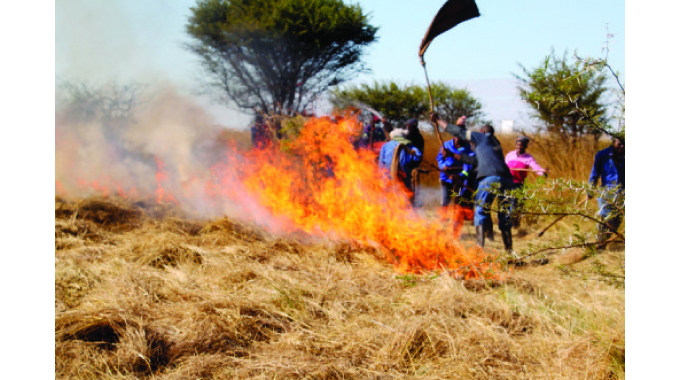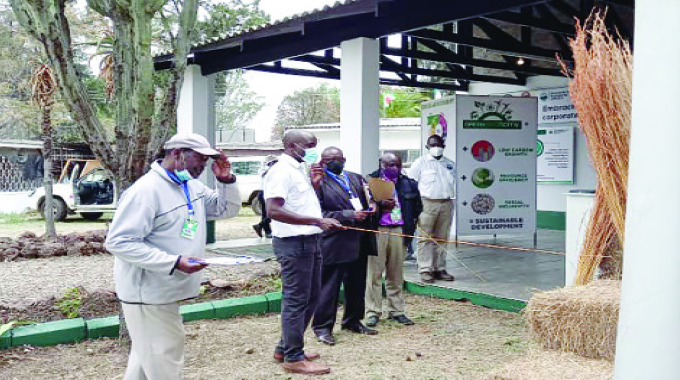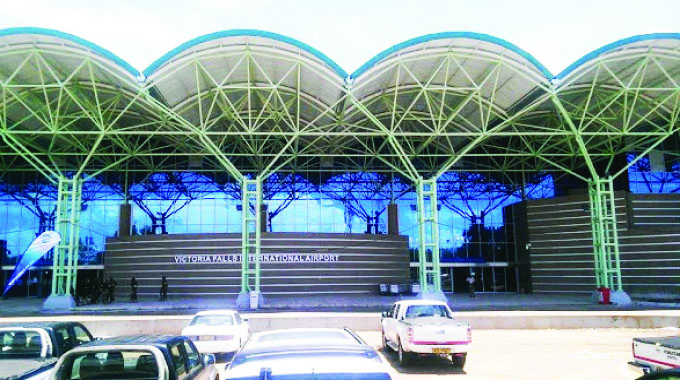Veld fires stress resettled farmers

Patrick Chitumba, Midlands Bureau Chief
FOR Ms Tariro Mazorodze (54) from Chirumanzu District in the Midlands Province, the thought of a veld fire brings shivers down her spine.
This is because last year she lost four goats to veld fires while her cattle deteriorated in weight after pastures were burnt.
Veld fires do not only destroy the environment and bio-diversity, but impact negatively on economic development especially in the tourism and livestock development sectors.

Bio-diversity
Also known as bushfires, veld fires, have caused problems for most resettled farmers who cannot afford stock feed and rely on pastures.
“When I hear of a veld fire, I get a shiver down my spine because of the bad memories they bring.
I lost four goats to veld fires last year.
Other people might think the figure is insignificant, but I only had 12 goats of which four died and that’s a great loss for me.
On top of that, pastures were destroyed and that affected my cattle.
They lost weight and some miscarried.
Other villagers lost valuable property to veld fires and we must by all means try to guard against them,” said the mother of three children.

Environmental Management Agency (EMA)
Ms Mazorodze is one of the villagers who attended the Environmental Management Agency (EMA) belated fire awareness programme aimed at educating communities about sustainable environmental management as well as training environmental sub committees.
In the Midlands Province, the launch was done at Hagley Farm in Chirumanzu District under theme: “Veld Fires, a Food Security Threat — Protect the Harvest.”
Hagley Farm which is located in Ward 22 is home to 800 dairy cows which produce 250 000 litres of milk in a month.
However, fires that originate from the neighbouring villages are a threat to this enterprise.
The fire week launch event that was held at Hagley Farm was meant to capacitate community members on veld fire management since a protected environment creates an enabling environment for thriving crop and livestock production.
In total, 23 environmental subcommittees and five firefighting teams were trained in Chirumanzu District.
In addition, fire orders were issued to village heads and farmers for the construction of fire guards in preparation for the fire season.
The 2021 fire season comes on the backdrop of normal to above normal rains in the 2020/2021 rainfall season which was characterised by high biomass growth.
In Midlands Province, fires are more problematic in A1 and A2 farms and they easily spread from one farm to the next as most farmers do not construct standard fire guards.
In 2021, over 89 000 hectares was lost to veld fires compared to over 24 000ha that was destroyed in 2020 in the Midlands Province.
Chirumanzu, Gweru, Kwekwe, Shurugwi, Gokwe North and Gokwe South are the fire prone districts in the province.
The same year, Chirumanzu District was the most affected, having lost over 34 000 ha to veld fires.
The major causes of these runaway fires include land preparation using fire, hunting, improper ash disposal, honey gathering, smoking, improper disposal of cigarette stubs and illegal mining.
Farmers have lost livestock and infrastructure has been destroyed.

(EMA) Midlands provincial spokesperson Mr Osward Ndlovu (second from left) talks to visitors about biomass and biogas
Environmental education and publicity officer for Midlands at EMA, Mr Osward Ndlovu said veld fires continue to be one of the pressing environmental issues in the province.
“In 2021, a total of 89 969,65ha was lost to veld fires compared to 24 234,94ha that was destroyed in 2020 in Midlands Province.
Chirumanzu, Gweru, Kwekwe, Shurugwi, Gokwe North and Gokwe South are the fire prone districts in the province.
The same year, Chirumanzu district was the most affected, having lost 34 810,33ha to veld fires,” said Mr Ndlovu.
He said veld fires have affected the fauna and flora, polluted air and water, and destroyed livelihoods.
“Challenges to environmental management and sustainability posed by veld fires include property damage, reduced soil fertility, destruction of vegetation, air and water pollution and destruction of wildlife.
Most veld fires are a result of human actions that emanate from the disposal of cigarettes, the burning of vegetation when preparing fields, the use of fire by hunters, smoking out bees and the making of fires by motorists along highways,” said Mr Ndlovu.
He said the Government should consider reviewing environmental statues, adding that fireguards should be wide enough to lessen veld-fire impact.

Agritex
“The Environmental Management Agency has been working closely with the Forestry Commission, Allied Timbers and Agritex in engaging communities on veld fire management in hot spot areas and training firefighting teams.
In May 2022, EMA conducted an awareness programme in Chirumanzu District,” said Mr Ndlovu.
He said veld fires are a threat to crop and animal production if they are not managed as they destroy harvested crops and animal forage.
“As we are slowly approaching the fire season which is between 31 July and 31 October each year, communities should be on high alert and desist from starting fires outside residential and commercial premises during this period.
We encourage all farmers and landowners to construct standard fire guards that are at least 9 metres wide on either side of their boundaries as a way of keeping veld fires out,” said Mr Ndlovu.
He said fire guards can be constructed using ox drawn ploughs or tractors.
In addition, he said farmers should also have trained firefighters who will assist in putting out fires using knapsack sprays, fire beaters and pressurised tanks.
Farmers should also venture into hay baling to reduce biomass which helps in reducing fire intensity in the event of a fire outbreak.
Hay bales are also used as supplementary feed for livestock during the dry season.
“In 2021, 116 112 hay bales were produced across the province, clearing 10 665 hectares of biomass.
In addition to hay baling, we also encourage community members to venture into thatch grass harvesting as this helps in biomass reduction while people derive financial benefits from selling the bundles.
“One such group that is benefiting from selling thatch grass is a group of women from Mambo in Gweru.
In 2021, 50 000 thatch grass bundles were harvested in the province,” said Mr Ndlovu.
“As a regulatory authority, we are also working closely with farmers, traditional leaders and law enforcement agencies in raising awareness on veld fires as well as coming up with strategies of combating these destructive infernos.
“All stakeholders should play their part in the fight against veld fires.”
Preventing veld fires may not be entirely possible, he said, but there is a considerable scope to minimise the risk to life and property through effective management and mitigation strategies.









Comments